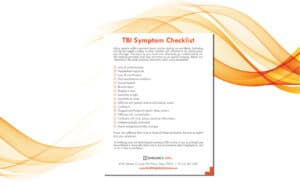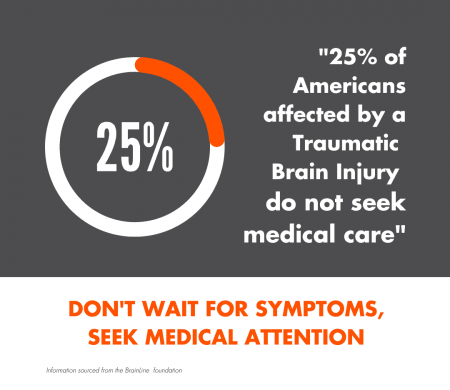Snellings Law PLLC Attorneys are Personal Injury Trial Lawyers
Motorcycle Wrecks & Traumatic Brain injuries
There's A Risk
I recently had a friend get his motorcycle license. He had always wanted ride, but he had never had the time or resources to buy a bike, take the classes, and practice. I guess he was tired of being cooped up due to COVID and decided now was his time. He shopped around and bought a bike, took his lessons, and is now a licensed rider. Did I mention he also works for neurologists – brain doctors? How do you think they reacted to finding this out?
We all know that riding a motorcycle is inherently dangerous. You can be the safest rider, wearing the safest equipment, and riding the motorcycle with the best safety features – but when someone pulls out in front of you, hits you from behind, or changes lanes directly into you – you may be airborne and/or hitting the pavement or other car.
Motorcycle Wreck Statistics
In 2015, motorcycles were 3% of all registered U.S. vehicles and accounted for an amazingly small .6% of all miles traveled. Yet, in the same year, motorcyclists accounted for 14% of all traffic fatalities. We all know that an accident involving a motorcycle is very dangerous. There are no airbags, seatbelts, crumple zones or other protective features to keep us within the vehicle. This obviously puts riders at a much higher risk of catastrophic injury than auto passengers. Motorcycle wrecks are also a frequent cause of traumatic brain injuries, and it is important that riders and their families know the TBI symptoms in case they or a loved one is ever involved in a motorcycle crash. You can download our TBI symptom checklist here.
Download FREE TBI Symptom Checklist

Traumatic Brain Injuries and Types
Traumatic brain injuries (“TBI”s) are common in motorcycle accidents. A traumatic brain injury is, according to the CDC, “a bump, blow, or a jolt to the head that disrupts the normal function of the brain.” While not all blows or jolts to the head result in a TBI, a traumatic brain injury can be very serious. They can result in changes to behavior, emotions, speech, listening, motor functions, sleep cycles, and more.

Common causes of brain injury that we often see in traumatic events include:
Concussions
Concussions are caused when the brain suffers a violent shock that causes the brain to move back and forth. This movement can cause the brain to move within the skull, bouncing or twisting around. The symptoms of a concussion can include headaches, fatigue, light-headedness, memory loss and more. NOTE: You do not have to lose consciousness to have suffered a concussion. Concussions are the most common and frequent TBI. While they are typically not life threatening, they are still very serious and should be treated as such. Concussions can leave some with lingering symptoms for a very long time. We often see concussions in our motorcycle clients when they strike their head on a vehicle or concrete. Even if you wear your helmet, you are still at risk to suffer a concussion.
Diffuse Axonal Injury
Diffuse axonal injuries are tears of the long connecting nerve fibers within the brain – and can be anywhere from mild to severe. These injuries occur from the head being accelerated too fast, whether from speeding up or slowing down. This is another common form of TBI- but not quite as frequent as concussions. Symptoms depend on the area of the brain that is damaged. If a loved one has suffered a head injury, it is important to note any and all behavior changes. More serious cases can lead to significant and ongoing symptoms throughout an individual’s lifetime.
Contusion
A contusion is a brain bruise which can cause bleeding and swelling within the brain. This is a very common injury in motor vehicle accidents and can vary from mild to extremely serious. In more severe cases, skull fractures may be present as well as swelling to the brain, which is very dangerous.
Penetrating Head Injury
Also known as an open head injury- occurs when an object enters the skull and damages the brain. Skull fragments impacting the brain due to an external force can cause this injury as well. This is an extremely serious injury and some common symptoms may be seizures, bleeding from the ears or clear fluid coming from the ears, problems breathing, problems moving, etc.
Wear a Motorcycle Helmet
Just like my buddy that started riding recently, I certainly didn’t tell him to never ride a motorcycle! However, I did urge him to always wear a helmet! The cushioning of a helmet can provide crucial support that could potentially save your life. Similar to how an airbag cushions your head from impact in a car accident, the helmet acts as a shock absorber to the impact. Helmets reduce the risk of a head injury during a motorcycle wreck by 69%- and reduces the chances of death by 42%. Without a helmet, your head has no barrier when you get into a motorcycle accident. Although it may seem like a plastic helmet can’t do much- it can.
Get the Help You Need
If you or a loved one has been in a motorcycle wreck, make sure they get the proper medical attention they need first. Next, focus on the legal side- find your personal injury trial attorney and have them get to work. You typically only have two years to file a case that involves catastrophic injury or wrongful death.

Call Snellings Law Today
Call Snellings Law PLLC today at 214-387-0387 if you have suffered injuries in a motorcycle accident due to someone else’s negligence. We can help give you more information and get started on the intake process as soon as possible. At Snellings Law, you focus on healing- we’ll take care of everything else.
If you are looking for more information, check out some of our other motorcycle blogs such as Uneasy Riders.
Sources
Free Strategy Session Reveals How To Avoid the Traps Insurance Companies Set for Victims to Destroy Claims.
How it works:
- Call us now or give us your basic information in the Free Strategy Session box
- If your case is something we cannot help you with, we will do our best to get you the information of someone who can.
- If we can potentially help you, we will schedule a Free Strategy Session
There is zero obligation. We want all injury victims to understand their rights and the process.
After your Free Strategy Session, you will understand where insurance companies can set traps for you and what needs to be done to avoid these traps. You will also understand the personal injury process as well as how we can help, or if you need the help of an attorney. The strategy session typically will have one of three outcomes. You:
- Decide to move forward with our law firm.
- Decide to think about it, and we will be available to answer your questions.
- Say, “I’ve got this,” and decide you do not need an attorney.
Again, there is zero obligation and you will be informed and understand your rights and the process. We want to arm you with knowledge to avoid the traps insurance companies set to harm your claim.

